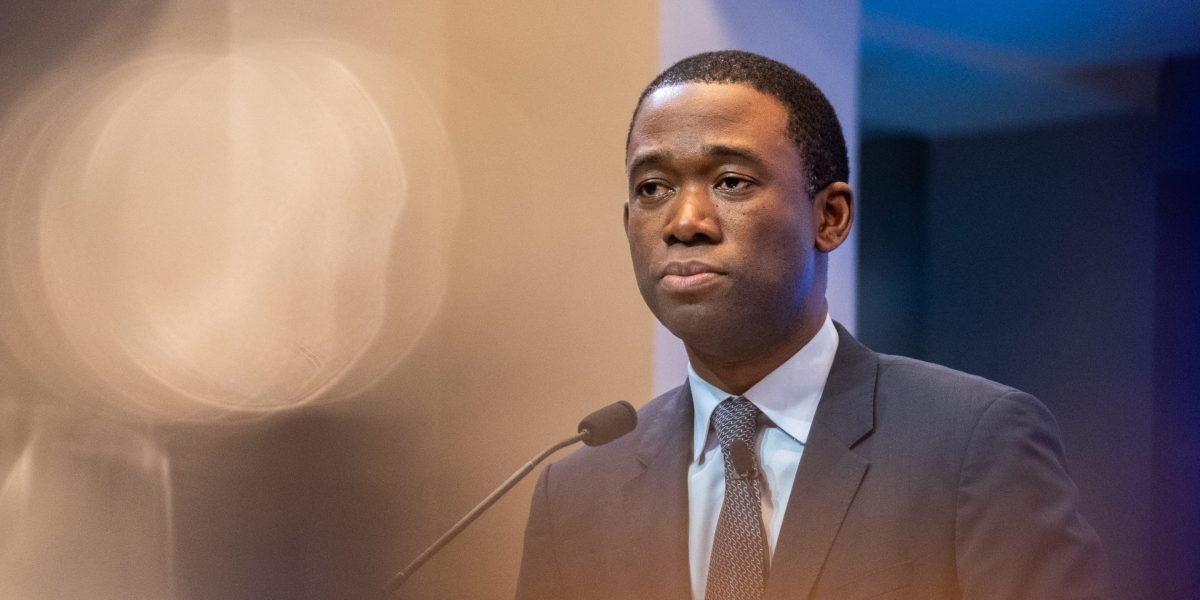Last fall, much of the U.S. crypto industry became embroiled in a squabble with the Wall Street Journal, whose investigative reporters published an article about Hamas turning to digital assets for fundraising. Prominent crypto luminaries accused the Journal of overstating the breadth of the problem and demanded a retraction, while the reporters stood by their conclusions.
The controversy largely dissipated by the end of November, when Treasury Department Deputy Secretary Wally Adeyemo waltzed into the Blockchain Association’s annual policy summit in D.C. and said, in no uncertain terms, that the sector had to do a better job of stamping out illicit finance, just a week after his department had brought its largest enforcement action ever against Binance.
I was in the room for Adeyemo’s address. The gathered crowd of lawyers, entrepreneurs, investors, and degens grumbled about his clear disdain for their belief in the transformative power of digital assets, as well as the potential of his department to roll back progress in privacy protections. Still, they seemed largely chastened and aware of the reality: If the crypto industry doesn’t do a better job of self-policing, then the government will continue to step in.
As the argument always goes, money laundering and other criminal behavior is omnipresent in every corner of the financial world. The large banks regularly get dinged for violating all sorts of rules, and (mostly) no one talks about shutting down J.P. Morgan or Goldman Sachs. The problem for crypto, however, is that the sector still hasn’t made a convincing case for why it has to exist, and to the outside world, its main additive value seems to be creating a regulatory gray zone for shady actors.
A recent article from one of the reporters behind the Wall Street Journal Hamas exposé demonstrates the conundrum. The investigation, published on Monday, details how one Russian arms smuggler turns to the stablecoin Tether to relay millions of dollars because both the U.S. had imposed sanctions on traditional money routes, and even Chinese banks were wary of payments from Russia. “For Vladimir Putin’s war machine, Tether has become indispensable,” the authors write. Unlike the Hamas piece, the evidence seems largely unassailable through Russian import and tax records, as well as interviews—they even got the arms dealer to speak, though he eventually went quiet.
As the article details, much of the Tether was traded through a Moscow-based crypto exchange called Garantex, which runs a network of cash exchangers inside Russia. Though the Treasury Department sought to blacklist Garantex in 2022, it continues to thrive. A separate article from Bloomberg last week revealed that the U.S. and U.K. governments are reviewing more than $20 billion of crypto transactions that passed through the exchange.
The clear argument for crypto advocates is that Garantex and Tether aren’t really crypto—there’s nothing decentralized about them, and blockchain technology doesn’t really have anything to do with a dollar-backed asset finding popularity because of its ability to transact across the world outside of the traditional banking system. Even so, the predominance of Tether—which currently has a market cap of $105 billion and has about twice the trading volume as Bitcoin every day—demonstrates that regulatory arbitrage remains one of crypto’s most appealing use cases.
Not to put on my tinfoil hat, but I doubt it’s a coincidence that both the Wall Street Journal and Bloomberg articles appeared just before Adeyemo is poised to testify in front of the Senate Banking Committee next week on a hearing entitled “Countering Illicit Finance, Terrorism and Sanctions Evasion.” Led by crypto skeptic Sherrod Brown (D-Ohio), you can expect plenty of questions about the role of digital assets such as Tether in everything from global arms dealing to fentanyl, and the crypto industry should not pretend that it is innocent.
“You have the capacity to build new tools that help prevent money laundering while continuing to provide legitimate protections to individuals,” Adeyemo told the Blockchain Association summit last November. Has any progress been made?
Leo Schwartz
leo.schwartz@fortune.com
@leomschwartz
DECENTRALIZED NEWS
Bitcoin suffered an 8% drop yesterday as demand for Bitcoin ETFs cooled and hopes for Federal Reserve interest cuts dwindled. (Fortune)
The crypto VC behemoth Paradigm is reportedly in talks to raise over $750 million for a new fund, although it would still pale in comparison to its last fund in 2021 of $2.5 billion. (Bloomberg)
A profile of the founder and CEO of the crypto exchange Thodex, who just started an 11,196-year prison sentence in Turkey for laundering assets. (Wired)
SEC Commissioner and so-called “Crypto Mom” Hester Peirce continues to criticize her agency for stifling innovation. (CoinTelegraph)
A profile of Goldman Sachs chief investment officer Sharmin Mossavar-Rahmani revealed that the banking giant does not view crypto as an “investment asset class.” (Wall Street Journal)
MEME O’ THE MOMENT
Looks like Elon was able to solve the crypto scammer problem on X:
This is the web version of Fortune Crypto, a daily newsletter on the coins, companies, and people shaping the world of crypto. Sign up for free.






